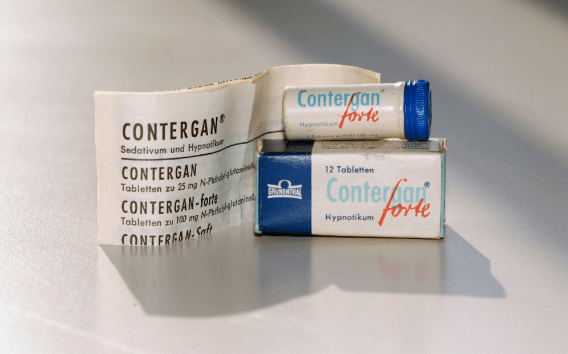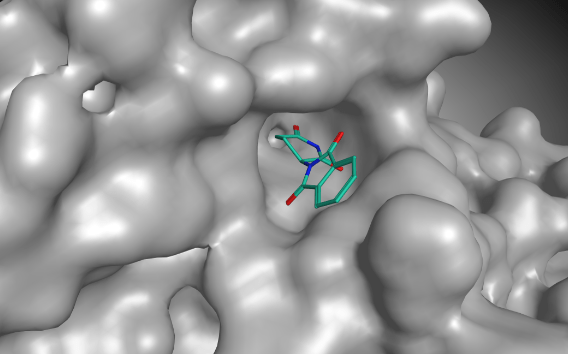

Our engagement reflects our responsibility:
How Grünenthal supports people affected by Thalidomide
People affected by Thalidomide were known as “Thalidomide babies” at the time of the tragedy. Today, they are in their sixties. Because of their physical impairments, they have lived with a wide range of disabilities, which in some cases are extremely severe. As they grow older, many are now facing increasing or additional health problems and mobility issues.
“We will never forget what happened, and we deeply regret the severe consequences for affected people and their families. We take our responsibility to help these people very seriously.”
The Grünenthal Foundation supports affected people and families by funding projects that contribute to a more independent life. In this way, it helps to close the gap between state aid and the practical needs of affected people. We remain in close contact with people whose lives have been impacted by Thalidomide in Germany and other countries. We aim to provide help where it is most needed.
In November 2021, Dr. Michael Wirtz, a shareholder of Grünenthal, apologised to affected people and their families on behalf of his family. From many conversations with this community, we understand the importance of this personal statement. Therefore, we value this gesture as a further step on the path of dialogue between affected people, Grünenthal and the shareholder family.
In 2023, the Federal Association of Thalidomide Victims and the Grünenthal Foundation created the Dialogue Forum. It is an institution that officially manages this dialogue. Through regular meetings and working groups, the Dialogue Forum will foster exchange and joint projects to tackle current and future needs. We are committed to living up to our responsibility and keeping the memory of the Thalidomide tragedy alive by continuously making more information available.
On this page, we provide an overview of how Grünenthal supports Thalidomide-affected people today and what federal support systems are available to affected people, wherever they live.
An international support system for Thalidomide-affected people
In the late 1950s and early 1960s, products containing Thalidomide were either sold by Grünenthal directly or by distribution partners and licensees under brand names including Contergan, Distaval, Softenon and others.
Today, there are various forms of support for people who were affected by these Thalidomide-containing products. This support differs from country to country.
- In countries where Grünenthal or its distribution partners at the time sold Thalidomide-containing products, monthly financial support is provided by the German Federal Contergan Foundation. This applies to Germany and 37 additional countries such as Austria, Belgium, Brazil, and Chile.
- In countries where licensees marketed their own Thalidomide-containing products, these companies provide financial support, sometimes together with the local government. Such arrangements exist, for instance, in Australia, New Zealand, the United Kingdom and Sweden.
- In countries where other companies marketed Thalidomide-containing products independently and without permission from Grünenthal, Thalidomide-affected people are generally supported by their respective countries. This is the case in Italy and in Spain, for example.
- In the United States, clinical tests by Grünenthal’s licensees were still ongoing and FDA approval was pending when the product was withdrawn from the market in late November 1961. Consequently, there are some Thalidomide survivors living in the U.S. despite the product never being approved by the FDA.
The benefits of the Grünenthal Foundation for the Support of Thalidomide-affected People are available to all affected people who are recognized by the German Federal Contergan Foundation or by comparable institutions, for example, through the Thalidomide Trust in the United Kingdom. To date, affected people from 17 countries have accessed the benefits of the Grünenthal Foundation. If you have any questions or want to apply for support, you can contact the Grünenthal Foundation here.
The Grünenthal Foundation for the Support of Thalidomide-affected People
Many of the affected people face enormous challenges as they try to live their life and complete daily tasks in a self-determined, independent way. The Grünenthal Foundation works to improve the living situation of people affected by Thalidomide quickly and for the long term.
Grünenthal founded the “Hardship Initiative” in 2011, when a Thalidomide-affected person contacted the company to ask for help with his individual case. The Grünenthal Foundation was established in 2012. Since then, it has provided support in nearly 4,500 cases in Germany and 17 other countries.
Through many in-depth conversations with people affected by Thalidomide, the employees taking care of the Grünenthal Foundation have learned about the importance of mobility and an independent life at home. Based on this understanding, our support has focused on financing measures in these areas:
- Kitchen Modifications: The kitchen is the heart of the home for many people. Through personalized adaptations, the kitchen can be made more accessible for disabled people in the long term. The Grünenthal Foundation helps with the corresponding modifications.
- Bathroom Adaptions: Another important aspect of independent living is the self-reliant accomplishment of personal hygiene. For this reason, the Grünenthal Foundation also finances modifications of bathrooms. These efforts focus on walk-in showers, non-slip floor tiles, height-adjustable wash basins, full-body dryers, and foot-operated fixtures.
- Mobility Solutions: Another central area of our support focuses on mobility outside of the home. Most Thalidomide-affected people find it difficult to use local public transportation. Having their own car is key to preserving social contact and participating in social life. For this reason, we also support financing passenger car modifications or the purchase of adapted bicycles.
In addition, the Foundation has developed projects involving voice-control technologies and assistance when travelling.
The Foundation also joined together with The Federal Association of Thalidomide Victims to launch the Dialogue Forum in 2023. Building on years of informal exchange on a personal level, the Dialogue Forum serves as a platform for regular exchange between affected people and the Foundation. In this way, it aims to implement long-term projects and to develop future-oriented solutions through close cooperation and continuous dialogue.
People who work for the Foundation often express a sense of personal and professional enrichment that they feel as a result of their engagement in this topic.
The German Federal “Contergan Foundation for Disabled People”
The German Federal Contergan Foundation, named after the medicine containing Thalidomide in Germany, was established in 1972. Since then, the foundation has provided Thalidomide-affected people with financial assistance such as monthly pensions and a one-time payment from the Fund for Special Needs, made available by the federal government. Additionally, it supports affected people from other countries if they are recognized as affected by a Thalidomide-containing product from Grünenthal or one of its direct distributors.
As a federal foundation under public law, the German Federal Contergan Foundation is overseen by the Federal Ministry for Family Affairs, Senior Citizens, Women and Youth. It acts entirely independently from Grünenthal.
To establish the foundation, Grünenthal and the German government each contributed 50 million euros (100 million German marks at that time). The payment was made in the context of an agreement between the company and the representatives of those affected in 1970. In 2009, Grünenthal voluntarily contributed an additional 50 million euros.
Today, affected people can still apply for recognition. The Medical Committee of the German Federal Contergan Foundation then checks whether the criteria required for benefits are met.
Data and Facts
Data and Facts
Data and Facts
The ongoing government support and the Grünenthal contribution form a reliable support system for people affected by the product in Germany and an additional 37 countries. In most countries where Grünenthal issued licenses to market Thalidomide, there are comparable support foundations set up by these licensees and/or the local governments.
For more information, go to the website of the Contergan Foundation.



